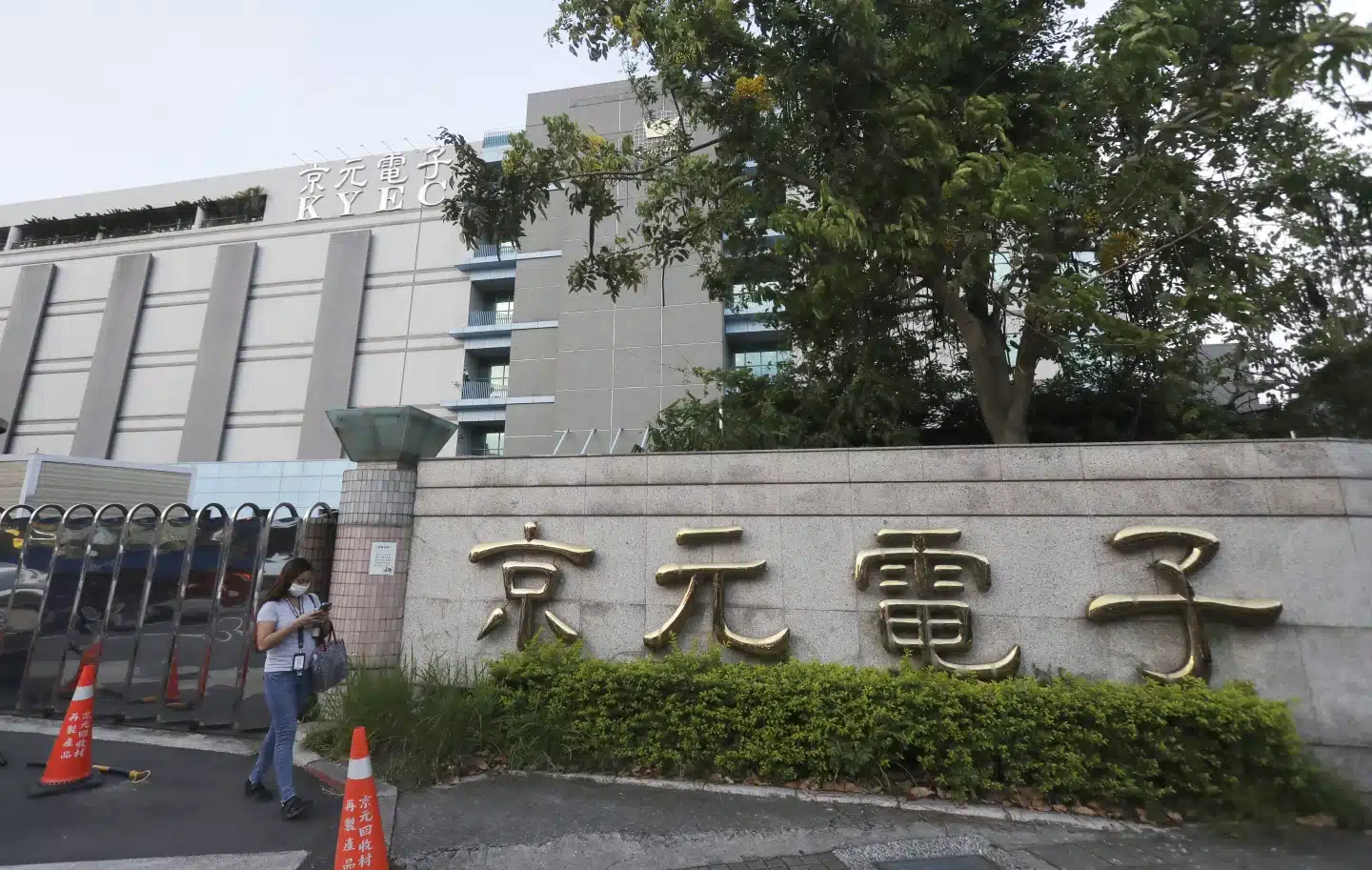World
Taiwan Is Selling More To The US Than China In Major Shift Away From Beijing

Washington — Whether tapioca balls or computer chips, Taiwan is moving toward the United States and away from China, the world’s second-largest economy, which threatens to capture the democratically governed island by force if necessary.
That has resulted in the world’s largest manufacturer of computer chips, which power everything from medical equipment to cellphones, announcing further investments in the United States last month following a boost from the Biden administration. Soon after, a Taiwanese semiconductor company announced the end of its two-decade-long presence in mainland China, citing global competition for a competitive advantage in the high-tech industry.
AP – VOR News Image
Taiwan Is Selling More To The US Than China In Major Shift Away From Beijing
These measures, which come at a time when the China-US rivalry is heating up, reflect Taiwan’s efforts to lessen its reliance on Beijing and shield itself from Chinese coercion while strengthening economic and trade connections with the United States, its most important partner. The change is also taking place as China’s economic growth has slowed and global corporations seek to diversify following supply chain disruptions caused by the pandemic.
In a clear example of the transition, the United States surpassed mainland China as the top destination for Taiwan’s exports in the first quarter of the year for the first time since early 2016, when comparable data became available. According to government data, Taiwan shipped $24.6 billion in commodities to the United States in the first three months, compared to $22.4 billion to mainland China.
Meanwhile, Taiwan’s investments in mainland China have dropped to their lowest level in more than 20 years, falling over 40% to $3 billion last year from the previous year, according to the Ministry of Economic Affairs. Nonetheless, Taiwan’s investments in the United States increased to $9.6 billion by 2023.
Washington and Taipei reached a trade pact last year and are negotiating the next phase. US lawmakers have also sponsored legislation to abolish double taxes on Taiwanese enterprises and workers in the United States.
“Everything is motivated by … a desire to build Taiwan’s deterrent capability and their resilience, all in support of maintaining the status quo and deterring China from being tempted to take … action against Taiwan,” Daniel Kritenbrink, assistant secretary of state, stated.
TSMC, the world’s largest computer chip producer, announced last month that it will increase its US investments to $65 billion. The Biden administration promised incentives worth up to $6.6 billion, putting the company’s Arizona factories on track to create around one-fifth of the world’s most advanced chips by 2030.
Aside from its US investments, TSMC is investing in Japan, a major US ally. Foxconn, a Taiwanese firm best known as Apple’s main contractor, is expanding its production capacity in India, while Pegatron, another Taiwanese company that manufactures iPhone and computer components, is investing in Vietnam.
Last month, King Yuan Electronics Corp., a Taiwanese company that specializes in semiconductor testing and packaging, announced the sale of its $670 million investment in a venture in Suzhou, eastern China. KYEC highlighted geopolitics, the United States’ embargo on exporting sophisticated semiconductors to China, and Beijing’s policy of technological self-sufficiency.
“The ecological environment of semiconductor manufacturing in China has changed, and the market competition has become increasingly severe,” the company stated.
AP – VOR News Image
Taiwan Is Selling More To The US Than China In Major Shift Away From Beijing
Taiwan’s semiconductors, electronic components and computer equipment exports to the United States more than tripled from 2018 to about $37 billion last year. It’s not only technology: between 2018 and 2023, the island more than tripled its exports of tapioca and its replacement, important ingredients in boba milk tea, to the United States, and it’s also sending more fruits, tree nuts, and farmed fish.
The recent trade numbers show “the strategy from both Taiwan and the U.S. to reorient that trade in an effort to de-risk from China,” said Hung Tran, a nonresident senior scholar with the Atlantic Council’s GeoEconomics Center.
Taiwan’s share of exports to mainland China and Hong Kong declined from approximately 44% in 2020 to less than one-third in the first quarter of 2024. That was “a very big movement,” Tran added. “And I think that the share (of exports to mainland China and Hong Kong) will probably continue to decline.”
Since the 1990s, Beijing has attempted to balance its claim to the island with advantageous economic and trade policies, hoping to build stronger connections that would make it more difficult for Taiwan to break away.
When the independent-leaning Democratic Progressive Party took office in Taiwan in 2016, the new administration announced a policy to remove the island from the mainland while strengthening economic relations with other countries in the area, particularly Southeast Asia. Unhappy Beijing used its economic leverage to try to bring Taiwan to heel.
It has restricted mainland tourists’ travel to the island and stopped imports of Taiwanese seafood, fruits, and snacks. In 2021, due to biosecurity concerns, China prohibited Taiwan-grown pineapples, wreaking havoc on Taiwanese farmers whose exported fruit was almost entirely consumed on the mainland.
Ap – VOR News Image
Taiwan Is Selling More To The US Than China In Major Shift Away From Beijing
According to Ralph Cossa, president emeritus of the Pacific Forum, a foreign policy research institute in Honolulu, Beijing’s activities have contributed to the island’s displacement.
Chinese President “Xi Jinping is tactically clever but strategically foolish in many of the decisions he has made; his loyalty tests on Taiwan businessmen and other heavy-handed business practices and decisions have been a major contributor to the success of Taiwan’s” policy to distance itself from China, he stated.
According to Cossa, this approach will continue under Lai Ching-te, the island’s new president.
SOURCE – (AP)




























